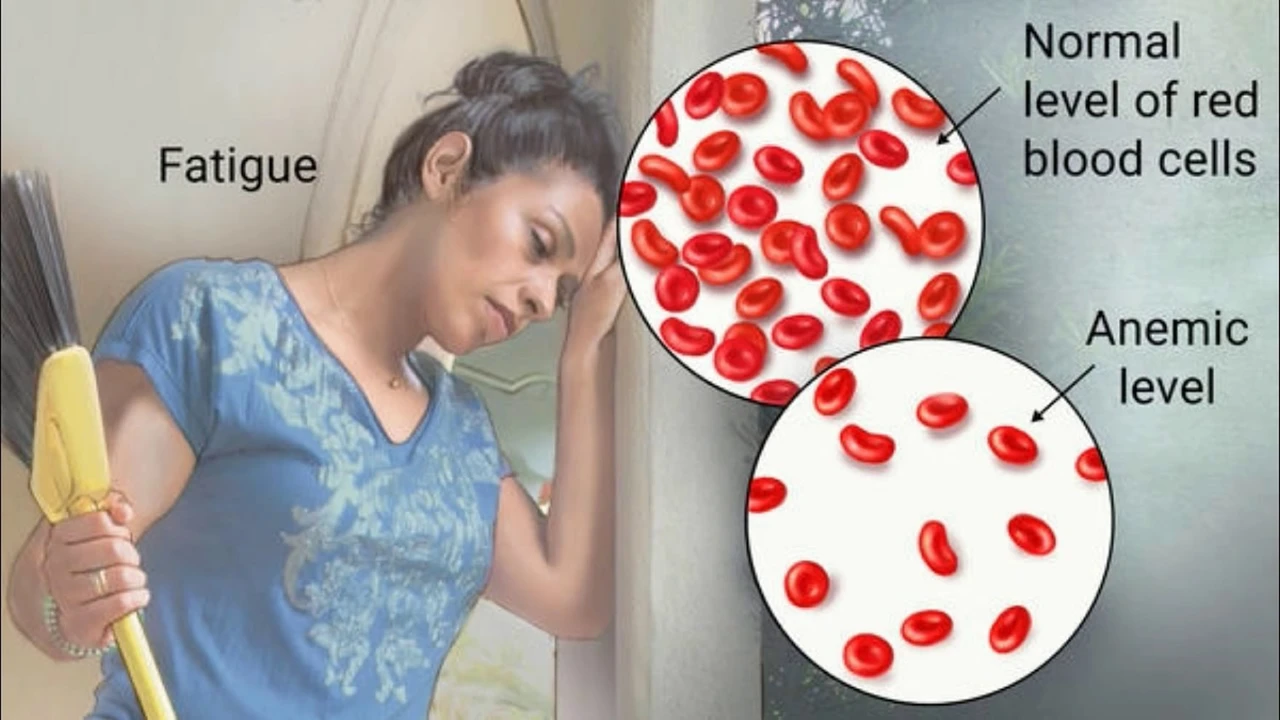Feeling tired all the time? Getting out of breath after just a few stairs? Those could be signs of anemia. It’s not just a lab number – low blood cells can mess with everyday life. Knowing the risks helps you catch it before it turns into a bigger problem.
Most anemia starts because the body doesn’t have enough iron. Iron is the ingredient that makes red blood cells carry oxygen. Not eating enough iron‑rich foods, losing blood from heavy periods, or having a gut condition that blocks iron absorption are common triggers. Vitamin B12 or folate shortages can also cause anemia, especially for people on strict veg diets. Chronic illnesses like kidney disease or rheumatoid arthritis keep the body from making enough red cells, adding another layer of risk.
Medications matter, too. Some pills for ulcers, antibiotics, or chemotherapy can lower blood counts. Pregnant women often face anemia because the baby needs iron, and the mother’s blood volume expands fast. If you’ve had surgery or an accident with a lot of blood loss, your body may need time to replace the lost cells.
When red cells drop, oxygen delivery slows down. That’s why fatigue shows up first – your muscles aren’t getting enough power. You might notice pale skin, especially on the face and inside the lower eyelids. Shortness of breath, dizziness, or a fast heartbeat are also common as the heart works harder to push the limited oxygen around.
If anemia sticks around, the heart can get strained. Over time, this can lead to heart enlargement or even heart failure in severe cases. For people with diabetes or heart disease, anemia makes those conditions worse. Pregnant women with untreated anemia face higher risks of preterm birth and low‑birth‑weight babies.
Beyond the heart, low iron weakens the immune system. You’ll catch colds more often and take longer to recover from infections. Kids with anemia may struggle at school because their brains aren’t getting enough oxygen for concentration.
The good news? Most anemia types are treatable. A simple blood test tells you what’s missing. Iron supplements, B12 shots, or dietary changes can raise levels quickly. But it’s important to find the real cause first – otherwise the problem can pop up again.
If you notice any of these symptoms, schedule a check‑up. Ask your doctor for a complete blood count and discuss any diet, medication, or health issues that could be pulling your blood count down. Early action can keep anemia from stealing your energy and health.

I'm absolutely amazed, and not in a good way, by how anemia can impact our elders. It's not just about feeling tired or having low energy, this medical condition has several risks and symptoms that we need to be aware of. As we dive into this topic, we're going to reveal just how anemia can affect the elderly, and most importantly, the strategies we can employ to manage it. So, if you're caring for an aged loved one or know someone who does, join me as we explore this topic because knowledge is power, especially in dealing with health-related issues.
Read More